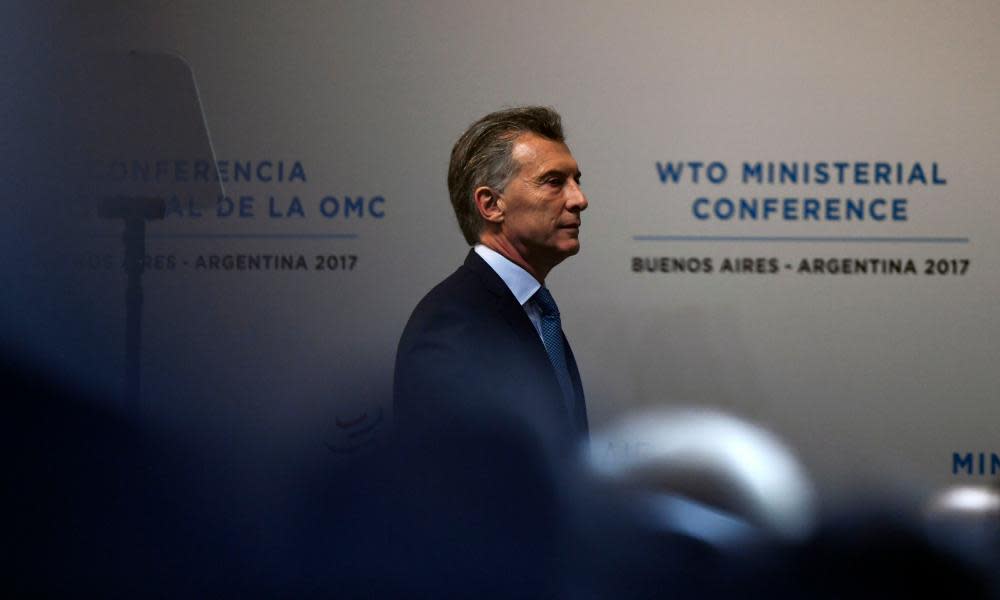Argentina criticised for banning NGOs from conference over social media posts

Argentina’s centre-right president Mauricio Macri has come under heavy criticism for banning representatives of 26 international NGOs from attending a World Trade Organisation (WTO) ministerial conference in Buenos Aires because of their postings on social media.
The Argentinian government revoked accreditation for around 60 people, and over the weekend deported two delegates who attempted to the enter the country for the biennial meeting. The activists represented 20 different groups, including Friends of the Earth International and Global Justice Now.
“The legitimacy of this WTO meeting is affected by this unilateral act by the Macri administration,” said Petter Titland of the Norwegian NGO Attac Norge who returned to Buenos Aires on Monday after initially being forced to board a flight to neighbouring Brazil.
According to Titland, Argentinian officials said he had been expelled because of his social media postings.
In a statement explaining its decision, Argentina’s foreign ministry said it had blacklisted NGO officials “who had made explicit calls for manifestations of violence through social media, expressing the intent to generate schemes of intimidation and chaos”.
The charge was roundly denied by Sally Burch, a British journalist and NGO representative resident in Ecuador who was turned back when she arrived in
Buenos Aires on Friday.
“Nothing is further from the truth,” Burch told the Guardian in a phone interview after arriving back in Quito. “None of the blacklisted NGOs have been advocating violent protest. That would be against their principles and it would be against mine as well.”
According to the Financial Times, Argentina at first refused to reverse its decision even under pressure from the WTO itself, but it finally relented in the case of Titland, three French citizens and one Belgian NGO representative.
All three countries had moved at a ministerial level on behalf of the NGO representatives to “provide guarantees of their behaviour and their organizations,” Argentina’s foreign ministry said in a statement on Sunday.
In the case of Titland, Norway’s foreign minister Ine Marie Eriksen Søreide provided assurances “he was not involved in violent actions or incited others to commit them either”, Argentina’s foreign ministry said.
Belgian NGO representative Michel Cermak was also only admitted after “receiving assurances from Belgium’s deputy prime minister and the ministry of foreign affairs of that country”, Argentina’s foreign ministry added.
In a tweet Sunday, the Norwegian foreign ministry seemed to chide Argentina for its ban.
“Glad that the Argentinian authorities will allow Petter Titland to attend WTO meeting after we have raised the matter on several levels. Participation & openness important,” the Norwegian foreign ministry said.
But the effected delegates blasted Argentina’s request for assurances of good behaviour from their respective governments.
“The only cases that have been resolved are those that were pressured at the ministerial level,” said Titland. “Requiring the foreign ministries of countries such as Norway to spend a lot of time and effort on this is outrageous. Macri’s people having been acting very unprofessional in this case.”

 Yahoo News
Yahoo News 